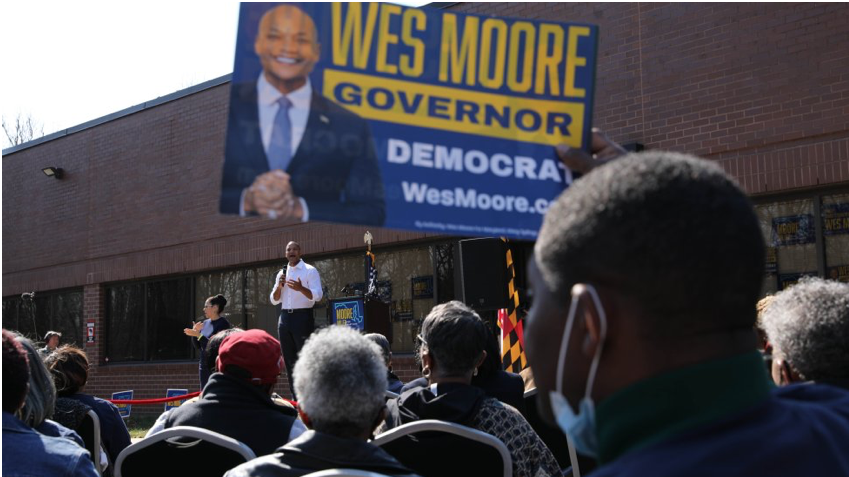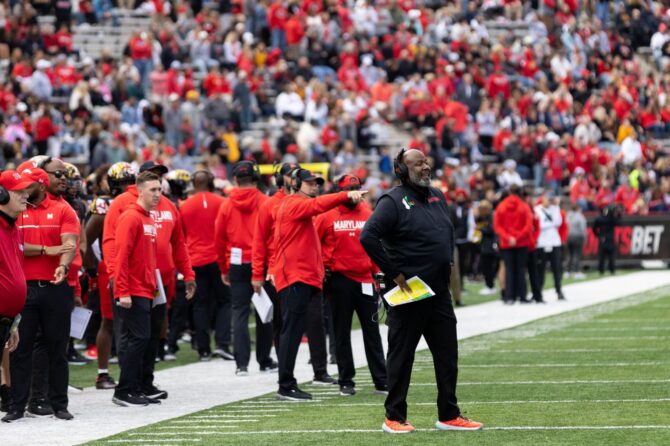WASHINGTON POST: In a wide-ranging town hall televised Tuesday evening, Maryland Gov. Wes Moore predicted that the Washington Commanders would keep the team’s stadium in Landover and said using public cash to build it will be part of ongoing negotiations with the team’s new leadership..
During other segments of the hour-long program aired on WUSA-9, Moore (D) emphasized the need to retool the state’s public education system and pledged to cut tax rates for some retirees. He also said he wanted to make Maryland a leader in artificial intelligence, home to the future FBI headquarters, a place that embraces immigrants and “the offshore wind capital of the planet.”
When asked how he would persuade the Democratic-dominated General Assembly to implement his other self-described “bold” goals, Moore responded, “You know why we’re going to get lawmakers onboard? Because we’re going to have the people. That’s where my power comes from, the people. And that’s why I know we’ll be able to make the advancements we need to make.”
When it came to the football team, Moore celebrated the ownership transition from Daniel Snyder to the group led by private equity and sports investor Josh Harris, with the governor saying he’s “incredibly excited.”
How Josh Harris’s Washington roots inspired him to buy the Commanders
“People are seeing that a new life has already been breathed into this franchise, which is a long and storied franchise,” Moore said in some of his most expansive public comments about the new ownership. Based on early conversations with new team officials, Moore added, he believes they share his desire for the team to bring wealth to other entrepreneurs and residents around the stadium.
“I believe this stadium should be in Prince George’s County. I believe it will be in Prince George’s County. I know that we’re excited to support the endeavor to make that happen,” Moore said.
National Football League owners ratified the record $6.05 billion sale of the Commanders last month, ending Daniel Snyder’s tumultuous tenure and injecting new urgency into the question of where the team will call home. The existing FedEx Field in Landover is widely considered a crumbling eyesore, and officials in D.C., Virginia and Maryland have jousted over whom should host the new one.
“For me, it’s not just about [winning] on the field,” said Moore, a sports fan who was a star wide receiver at Johns Hopkins University.
“It’s about producing a winner outside the stadium, too,” Moore said. “Are we building economic growth to everyone’s benefit? Are we building new businesses? New entrepreneurs? New pathways to work and wages? Well, the beautiful thing about this new leadership team and the conversations we’ve already had is: They believe in that.”
When pressed about providing state cash through the Maryland Stadium Authority to construct a stadium itself — rather than investing in infrastructure around it — Moore opened the door to using public money, provided that it creates “generational” benefits for the community.
“That’s part of the conversation, part of the negotiation that’s coming up now … that’s going to be led by the team owners,” he said.










